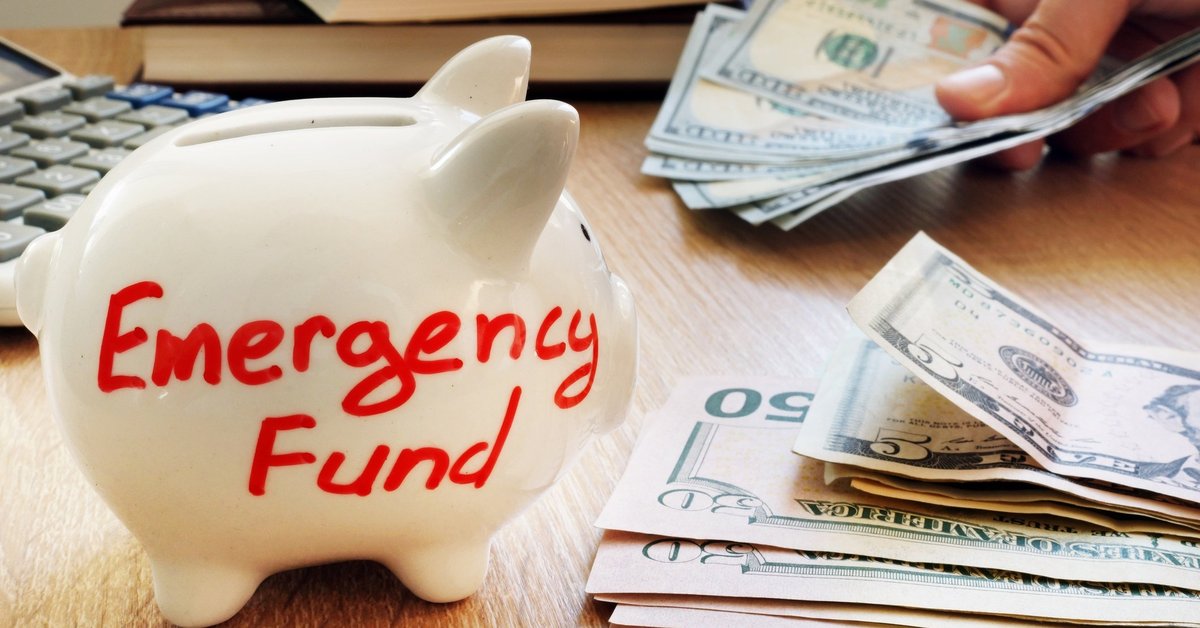Save $2,000: Boost Your Financial Well-Being by 21%, Says Vanguard

Image source: Getty Images
KEY POINTS
- Vanguard's 2025 research found that households with at least $2,000 in savings saw a 21% boost in financial well-being.
- Families with no savings report more time stressing and being less productive at work.
- Saving $2,000 is easier than you think -- and a high-yield savings account makes your money work harder.
Most financial emergencies aren't huge. A $500 car repair or a surprise dentist bill probably won't bankrupt you.
And because these minor emergencies are the most common, they're also the ones that cause the most day-to-day stress.
The good news? You don't need a ton of money in the bank to start feeling better. A new Vanguard study found that having just $2,000 in emergency savings can boost your financial well-being by 21%. This means feeling more secure, less stressed, and having more financial freedom to enjoy life.
$2,000 is enough to handle the most common curveballs life throws at you.
Benefits of hitting $2,000 in savings
Here are more fun facts from Vanguard's research. Households with at least $2,000 in emergency savings:
- Experience 21% higher financial well-being, regardless of income and debt levels.
- Spend half as much time dealing with finances each week
- Are 3x less likely to report rising financial stress year over year
- Feel more focused at work, losing 75% less time to financial distractions
$2,000 won't solve every problem -- but it covers a lot. It turns a flat tire into a minor hassle, not a full-blown panic.
And most importantly, it gives you a solid foundation to build on -- especially when it's tucked away in the right savings account.
How to build your $2,000 emergency fund
Don't worry if $2,000 feels out of reach. You don't need to save it all at once -- the key is to start small and stay consistent. Here's a quick guide:
1. Open a separate savings account
A high-yield savings account (HYSA) is perfect here. This is what I use personally. Keeping savings in a completely separate bank means you won't be tempted to touch or spend it.
Plus, many online banks offer 4.00% or higher APY on these accounts, meaning your money earns more while it sits. I'm a big fan of the Barclays Tiered Savings account. It has a high yield and no fees, and it's easy to use. Open one today and give your emergency fund a serious boost.
2. Automate small deposits
Set up a recurring transfer from your checking to your new savings account. Start small, like $50 per week. In about 10 months, you'll have $2,000 without thinking about it.
3. Boost it with windfalls
Throw any tax refund, work bonus, or birthday cash into the fund. Or if you can cut out any expenses during the month (like, skipping happy hour and saving $50 instead), funnel that into savings, too.
Once you reach the $2,000 mark, don't stop! The ultimate goal for emergency savings is three to six months' worth of living expenses. It may take years to build up to that, but the more you save, the more confident you'll feel.
Take the first step, today
Starting is the hardest part. But you'll feel immediately better once you do.
That first deposit might feel small, but it's proof you're serious about your future. And if you can put those savings on autopilot, you'll grow $2,000 before you know it.
To do this week: Open one of these top savings accounts, and transfer your first $50 into it. Congratulations on taking the first step!
免責聲明:投資有風險,本文並非投資建議,以上內容不應被視為任何金融產品的購買或出售要約、建議或邀請,作者或其他用戶的任何相關討論、評論或帖子也不應被視為此類內容。本文僅供一般參考,不考慮您的個人投資目標、財務狀況或需求。TTM對信息的準確性和完整性不承擔任何責任或保證,投資者應自行研究並在投資前尋求專業建議。
熱議股票
- 1
- 2
- 3
- 4
- 5
- 6
- 7
- 8
- 9
- 10